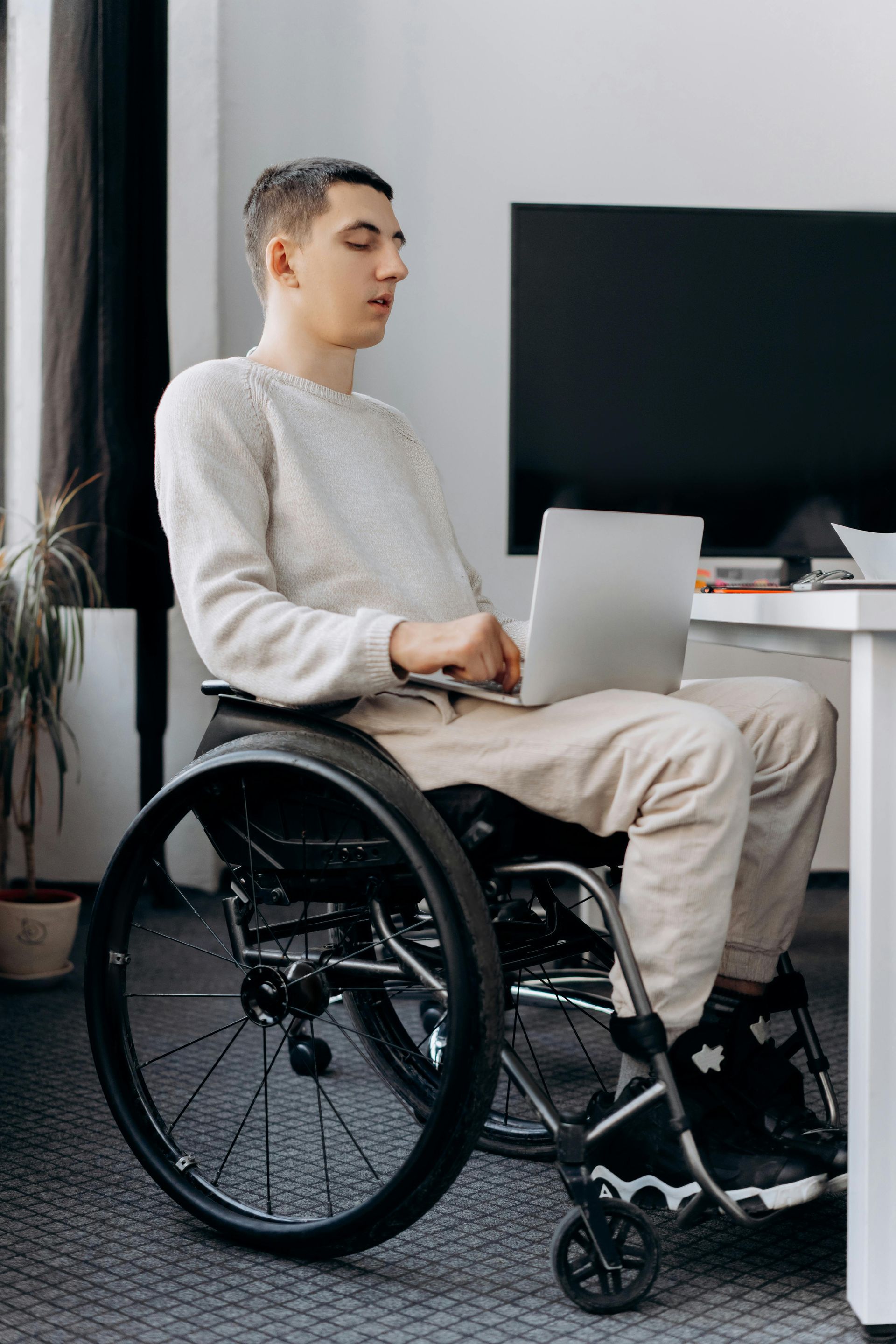Embracing the Digital Nomad Life with a Disability: Practical Steps for Independence and Ease
"Tools, Tips, and Strategies to Work, Travel, and Thrive—On Your Own Terms"

The idea of working from anywhere is more than just a trend—it’s a lifeline for people seeking flexibility, autonomy, and new horizons. For individuals with disabilities, the digital nomad lifestyle can offer unique freedoms, but it also comes with distinct challenges that require careful planning. This isn’t about chasing perfect conditions; it’s about creating them, one thoughtful decision at a time. By approaching each step with intention, you can make travel, work, and life abroad align with your needs instead of pushing against them.
Choose the Right Gear and Equipment
Mobility, safety, and comfort start with the tools you carry. Before booking that one-way ticket, take the time to bring adaptive travel essentials suited to you, whether that’s a compact wheelchair, noise-canceling headset, portable ramp, or ergonomic keyboard. Think about what keeps you productive and pain-free during long workdays and make those items non-negotiable. Many seasoned travelers recommend investing in high-quality gear over cheaper alternatives; it lasts longer, works better, and won’t fail you mid-trip. Your equipment isn’t extra baggage; it’s the infrastructure that supports your freedom.
Pick Accessible Destinations
Not every destination will work for everybody, and that’s okay. Focus on countries and cities with proven accessibility records, from curb cuts and tactile paving to wheelchair-friendly public transit. Resources like inclusive travel blogs make it easier to find places known for inclusive travel infrastructure before you commit. This upfront research can save you from on-the-ground frustrations like inaccessible hotels or attractions that claim to be “accessible” but miss key features. The right location won’t just meet your needs—it will invite you to fully participate.
Invest in Education to Expand Your Options
For those looking to strengthen their career trajectory and open more remote opportunities, pursuing a bachelor's in software engineering can be a smart move. The structured curriculum develops both technical expertise and real-world project experience, making you a more attractive candidate to employers seeking skilled, self-directed professionals. This credential can also unlock pathways to leadership roles, higher pay, and specialized positions in competitive industries. In a global market where qualified talent can work from anywhere, the right degree becomes a passport.
Advocate for Your Needs Confidently
While travel guides and booking websites might list accessibility features, the reality often differs. That’s why it’s critical to assert access needs with confidence when dealing with hosts, airlines, and local service providers. Be specific: ask about doorway widths, elevator access, bathroom setups, or the availability of assistive technology. This kind of precision reduces misunderstandings and empowers you to shape your environment. Remember, advocating for yourself isn’t about asking for special treatment—it’s about securing equal access to what you’ve already paid for.
Build Your Peer Support Network
Loneliness can creep in quickly when you’re always on the move, especially if accessibility challenges make spontaneous socializing harder. That’s why it pays to connect with fellow disabled nomads online before you arrive in a new city. These connections often lead to shared housing tips, co-working meetups, or simply a friendly face who understands the little battles of accessible travel. Social media groups and dedicated forums for disabled travelers can be goldmines of practical advice. A supportive network isn’t just emotional backup—it’s a live feed of resources you can trust.
Plan Healthcare and Safety Wisely
Access to healthcare abroad isn’t something to leave to chance. Before you go, research how to map out health coverage before leaving home, including what’s covered by your insurance and what local services are available. Some nomads keep a small kit of essential medications and adaptive equipment in carry-on luggage to avoid loss or delays. Others maintain a digital file of their medical history, prescriptions, and doctor contacts for quick sharing in emergencies. Health planning doesn’t make you pessimistic—it ensures you can respond quickly when life throws you a curveball.
Honor Your Energy and Schedule
The freedom to set your own hours is one of the digital nomad lifestyle’s greatest advantages—but it’s also easy to misuse. Learn to align your work times with your energy levels so that you’re not pushing through fatigue during your most creative hours. This might mean scheduling deep work in the morning and leaving afternoons for rest or lighter tasks. Protect your calendar from overcommitment and remember that time zone shifts can work for you, not against you, if you plan carefully. Your schedule is more than a productivity tool—it’s a safeguard for your well-being.
The digital nomad journey with a disability isn’t a matter of fitting into someone else’s template—it’s about designing your own. That means tailoring your gear, destinations, advocacy strategies, networks, healthcare, and schedule to reflect your reality, not an idealized version of travel. By embedding accessibility into every decision, you create a lifestyle that doesn’t just accommodate you but actively empowers you. When you put in the groundwork, the payoff is a seamless blend of work, exploration, and autonomy.
Your mobility might be assisted, but your independence is entirely your own. Discover how the Charlie E & Minnie P Hendrix Foundation is transforming lives by raising awareness and providing support for those battling multiple chronic illnesses. Visit their website to learn more and get involved today!
***On behalf of the Charlie E & Minnie P Hendrix Foundation for Chronic Illness, I want to sincerely thank Justin Bennett for your valuable contribution to our blog. Your post not only provides meaningful insights but also helps us continue our mission to educate, support, and inspire our community. ***
